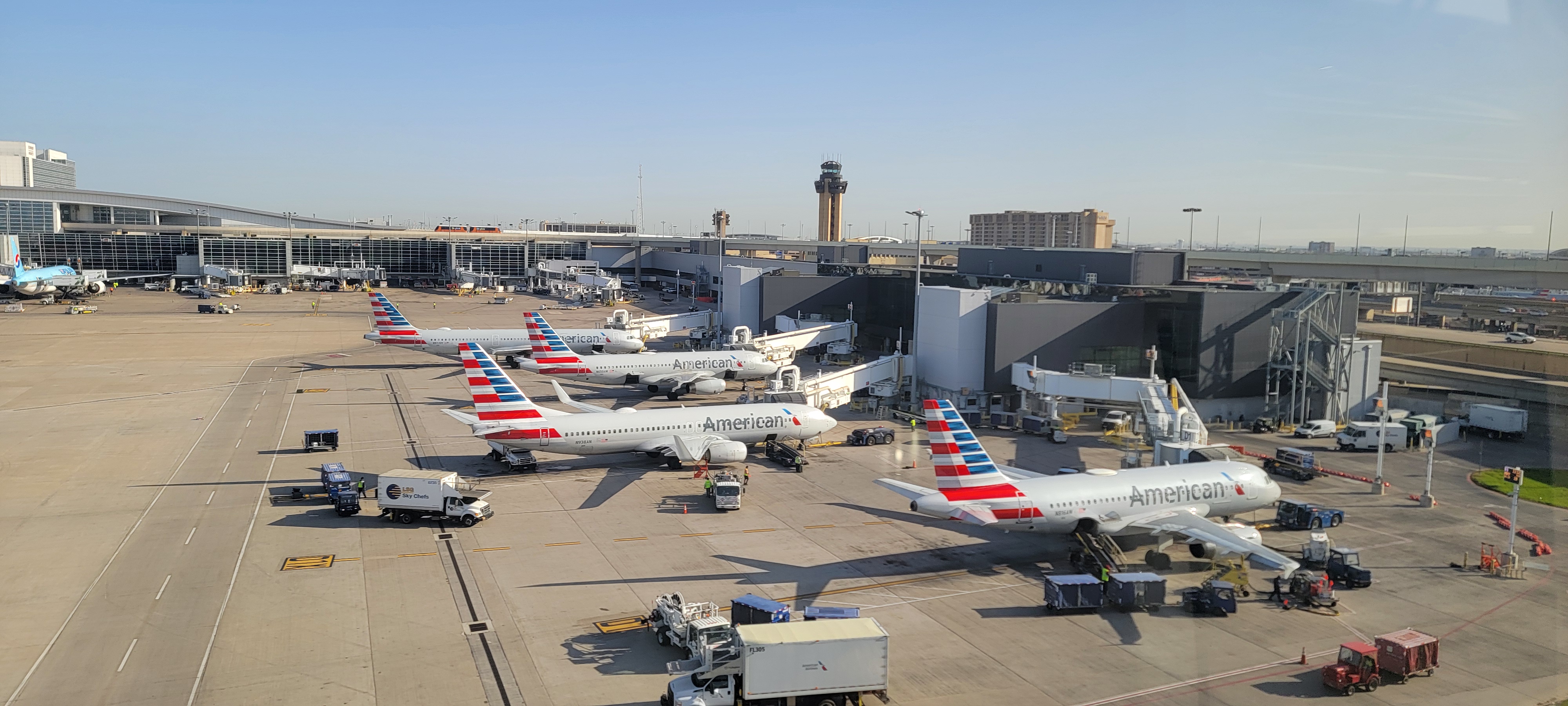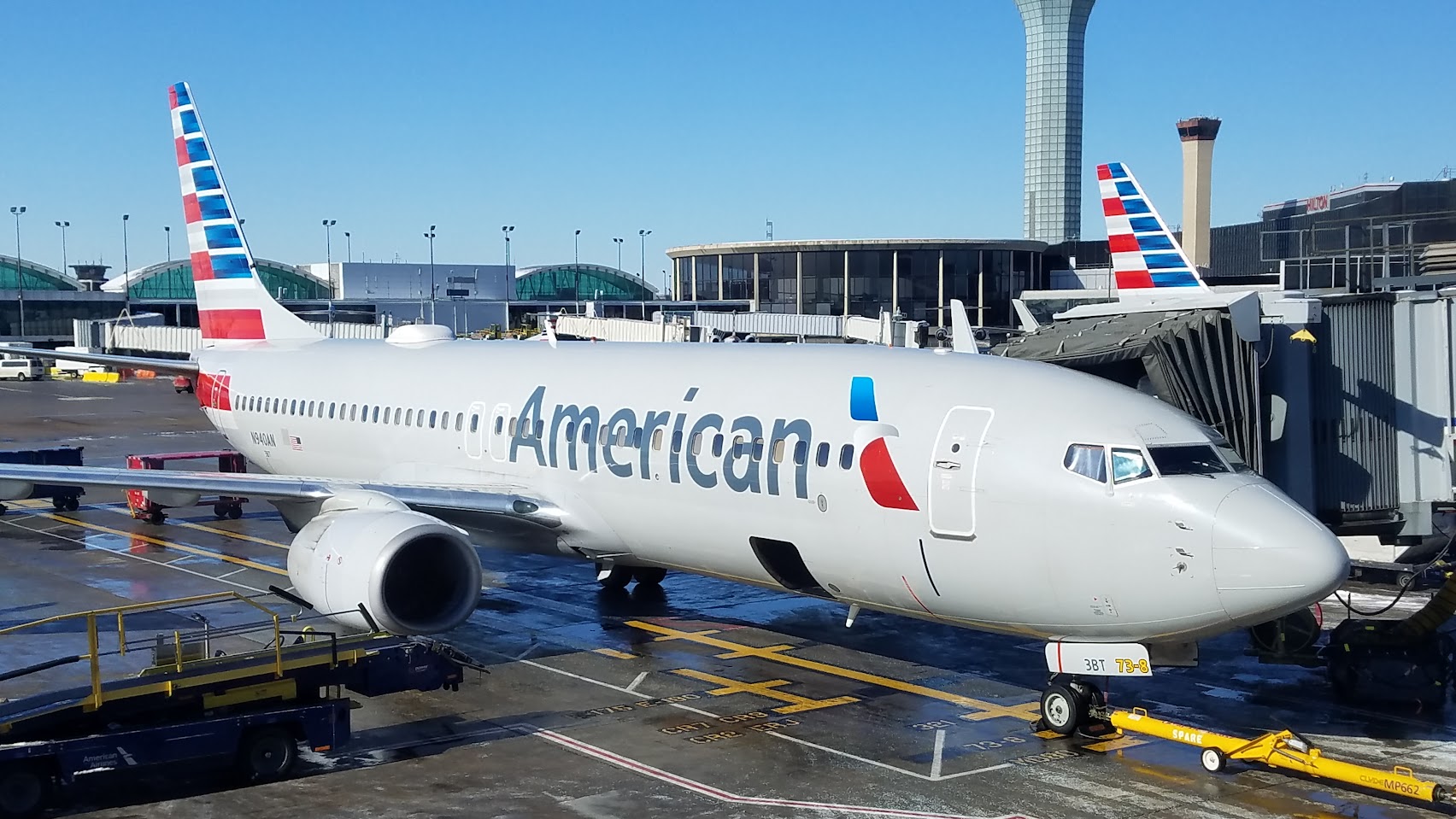On February 10 last year, an American Airlines Boeing 737-800 flew from Washington National DCA to Dallas – Fort Worth as flight 1632 with 98 passengers and 6 crewmembers. It landed on runway 17L – and overrun the way, into the safety area past the end. Everyone was safe and the aircraft was towed in.
The NTSB has now released its final report on what happened. It was maintenance error – and the flight has triggered changes at American Airlines, and a warning to other carriers from Boeing, because the mistakes that happened here have happened elsewhere before.
Statement from @AmericanAir spokesperson:
“On Feb. 10, American Airlines flight 1632 with service from Washington, D.C. (DCA) to Dallas Fort-Worth (DFW) experienced a braking issue on landing at DFW. The flight landed safely at 7:41 p.m. CT with 99 customers and 6 crew members… https://t.co/ux1lm9V7lS
— Ryan Ewing (@FlyingHighRyan) February 12, 2024
The aircraft registered as N991AN landed normally, with autobrake set to level 3 and flaps 30°. Seconds after touchdown, autobrakes disengaged. The pilots applied maximum manual braking but reported “brakes aren’t working.” Despite thrust reversers, the airplane overran the runway and stopped in the paved overrun area.

Four days earlier, the aircraft underwent a brake system modification at American’s Tulsa maintenance base.
- Steel brakes were replaced with carbon brakes per Boeing.
- As part of the modification, flow limiters replaced bulkhead unions, requiring hydraulic hose reconnection.
- The right main landing gear hoses (#3 and #4) were cross-connected, and left wheel speed transducer wiring (#1 and #2) was reversed.

Each time the antiskid system tried to release pressure from a skidding wheel, it instead released pressure on the opposite wheel. One wheel locked and skidded while the other lost braking force entirely. Both outboard tires failed, causing the loss of braking and overrun.
All faults trace to maintenance human error and inadequate post-modification functional checks. The NTSB noted three previous incidents (Air South 1995, United A320 2007 and 2008) caused by cross-wired antiskid systems leading to runway excursions — all attributed to maintenance error. The NTSB concludes,
Improper maintenance due to human error during a braking system modification diminished braking performance.
Contributing to the diminished braking performance was the lack of a functional check to verify the flexible hydraulic hoses and transducer wiring were connected correctly after the modification.

American Airlines has revised its engineering order card for this modeification to label hoses before removal; require inspector verification on reconnection; and add an operational test to detect swapped hoses or transducer connectors. They checked 303 aircraft fleetwide and no additional wiring swaps were found. Boeing issued an information notice warning of cross-connection hazards.
Ultimately, an American Airlines maintenance error in Tulsa during brake system modification, swapping hydraulic lines and reversing wheel speed sensor wiring, defeated the Beoing 737-800’s antiskid logic. This resulted in total loss of effective braking, tire failure, and runway overrun. No injuries occurred, but the event prompted fleetwide maintenance audits and Boeing procedural updates.


Thank you for reporting on this, Gary. While these incidents are unsettling, but, thankfully, not tragic, it’s great that the NTSB completes its thorough investigations, so that we learn from mistakes, and ideally, never repeat them, ultimately saving lives.
It still saddens and disappoints me greatly how the separate, tragic incident in late-January (AA5342) was so quickly and wrongly politicized, and done so directly by the President. (He knew better.) Obviously, here, AA1632 was not politicized, so it never got much attention.
Repetitive post that reads like AI. Oh well.
@Roy — Time to ‘take Roy off the grid!’ (@Mike Hunt, did you get that one?)
I wonder what happened upon landing TUL-DC A. Surely DCA requires significant & early braking.
GarySTL. My thoughts exactly.